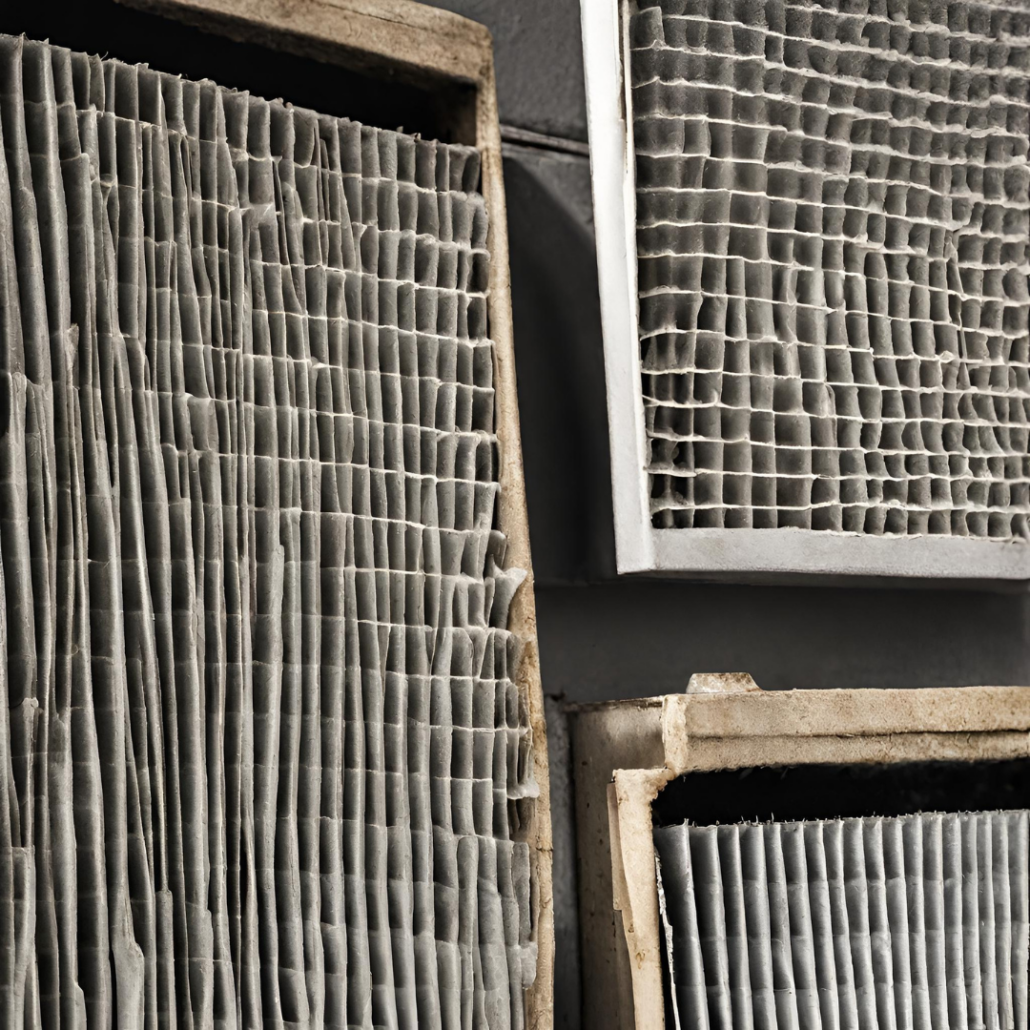Breathe Easier and Save Money: The Advantages of Regular HVAC Filter Changes
 Indoor air quality is a critical factor in maintaining a healthy and comfortable living environment. During the fall and winter months, when we spend more time indoors, the quality of the air we breathe becomes even more crucial.
Indoor air quality is a critical factor in maintaining a healthy and comfortable living environment. During the fall and winter months, when we spend more time indoors, the quality of the air we breathe becomes even more crucial.
This is where our HVAC (Heating, Ventilation, and Air Conditioning) systems play a significant role.
In this article, we’ll explore the significance of regular air filter changes throughout the fall and winter months and how this practice can contribute to better indoor air quality and increased efficiency of your HVAC system.
Understanding Air Filters
Air filters serve as the often-overlooked champions of our HVAC systems.
Their primary function is to capture a wide array of airborne contaminants such as:
- Dust
- Pollen
- Pet dander
- Mold, spores and fungus – Yes, Dr. Egon Spangler would be proud
- Minute particles
Helping to effectively curb these contaminants from further circulating within living spaces.
This not only enhances indoor air quality but also significantly contributes to the overall well-being of homes.
There are an assortment of air filters available in the market spans from elementary fiberglass filters to high-efficiency HEPA (High-Efficiency Particulate Air) filters (We’re going to cover the different types of filters in depth later in another piece of content).
In essence, air filters are like sentinels for your HVAC system, guarding it against the infiltration of undesirable airborne elements and thus ensuring that the air you breathe is cleaner and healthier.
The Impact of Seasonal Changes
With the arrival of colder weather, the natural inclination is to seal our homes by shutting windows and doors to ward off the chill during the fall and winter months – by the way, there’s nothing wrong with this.
However, this well-intentioned effort to stay warm can inadvertently heighten the concentration of indoor air pollutants.
This rise in indoor air contaminants is influenced by a combination of factors.
- First, reduced ventilation during these seasons limits the exchange of indoor and outdoor air, allowing pollutants to accumulate.
- Second, the increased utilization of heating systems, such as furnaces and fireplaces, releases their own set of byproducts and emissions into the indoor environment.
As a result, the interior atmosphere becomes more susceptible to a buildup of dust, allergens, volatile organic compounds, and other unwanted substances.
HVAC systems, when properly maintained and equipped with effective air filters, play a crucial role in mitigating the effects of these indoor air quality challenges and help to filter out and circulate clean air, ensuring that homes remain comfortable, warm, and, most importantly, safe from the negative impacts of heightened indoor air pollutants.
Significance of Regular Filter Changes
Regularly changing your HVAC system’s air filters is not just a maintenance task; it’s a fundamental step in ensuring optimal performance and air quality. Here’s why it matters:
- Maintaining Optimal HVAC System Performance: Clogged and dirty filters force your HVAC system to work harder to push air through, leading to reduced efficiency and potentially costly repairs – think about it, clean filters will save you money in the long run.
- Enhancing Indoor Air Quality: Clean air filters are the first line of defense against indoor air pollutants. They capture particles that can trigger allergies, asthma, and other health issues.
- Preventing Health Issues: Poor indoor air quality can lead to various health problems.
Regular filter changes can reduce the risk of respiratory illnesses and allergies caused by airborne contaminants (Covered above).
Enhanced HVAC System Efficiency
Clogged filters can significantly impact the efficiency of your HVAC system.
When air filters become blocked with debris, it becomes harder for air to flow through the system.
As a result, your HVAC system has to work overtime, which not only leads to higher energy bills but also increases wear and tear on the equipment.
Regular filter changes are a cost-effective way to ensure your HVAC system operates efficiently, ultimately saving you money and extending the lifespan of your system.
Tips for Regular Filter Changes
To reap the benefits of regular filter changes during the fall and winter, consider the following tips:
- Frequency: Check your filters regularly and change them according to manufacturer recommendations, typically every 1-3 months during the fall and winter.
- DIY vs. Professional Replacement: While some homeowners may opt for DIY filter changes, others may prefer professional HVAC maintenance services. Choose the option that best suits your skills and budget.
- Cost-Effectiveness: Consider the cost savings in terms of improved energy efficiency and reduced health-related expenses when factoring in the cost of quality air filters and regular replacements.
Conclusion
Maintaining good indoor air quality and ensuring your HVAC system operates at peak efficiency are essential aspects of homeownership, especially during the fall and winter months.
Regularly changing your air filters is a simple yet highly effective way to achieve both goals.
By doing so, you can enjoy cleaner, healthier air in your home, lower energy bills, and a longer lifespan for your HVAC system.
Don’t overlook this crucial aspect of home maintenance; it’s an investment in your comfort, well-being, and the longevity of your HVAC equipment.
Need a filter? Hop over to our online shop and we’ll get one sent directly to your home!

 Jacobs and Rhodes
Jacobs and Rhodes Jacobs and Rhodes
Jacobs and Rhodes